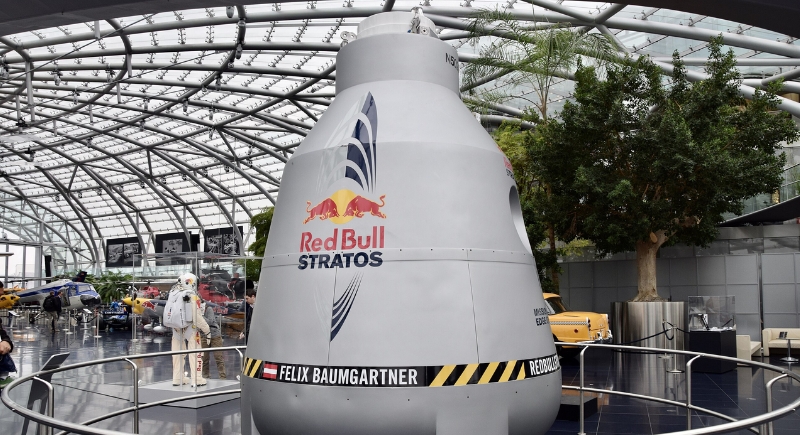The Story of the Man Who Jumped From the Edge of Space and Broke the Sound Barrier
This is a story of one man’s audacious dream to leap from space, defy the laws of gravity, and break the sound barrier all in a single jump. Felix Baumgartner wanted to do the unthinkable. On October 14, 2012, he stood at the edge of the Earth, ready to leap into the unknown, and what happened next would change the way we think about skydiving and human limits.
Baumgartner’s mission, dubbed Red Bull Stratos, was a feat of human engineering, courage, and sheer will. He was about to become the first person to free-fall faster than the speed of sound, but there was a catch: it could also be the last thing he ever did.
The Jump That Had the World Holding Its Breath
On the morning of October 14, 2012, Felix Baumgartner’s heart raced from the excitement of the jump and from the potential weight of its history. His ascent, in a capsule suspended from a massive helium balloon, took him 24 miles up into the stratosphere.
As Felix prepared for the moment of truth, more than 8 million people tuned in to watch live on YouTube, thus breaking Guinness World Records for concurrent views. At 9:28 AM local time in Roswell, New Mexico, Baumgartner’s capsule finally reached its destination.
After hours of preparation, Felix stood at the door of the capsule. The air was so thin that the world below him looked like a distant, curved painting. The team on the ground, including his mentor and previous record-holder, Joseph Kittinger, who jumped from 19 miles in 1960, kept their eyes locked on the mission.
The first few seconds of the jump were uneventful, but then things took a turn. Baumgartner began spinning out of control even though he had trained for this. He was breaking the sound barrier, after all.
As he plummeted toward Earth, he reached speeds of 843.6 mph (Mach 1.25). The G-forces and uncontrollable spinning pushed his body to its limits. Felix had to fight to stay conscious and stabilize himself, all while descending faster than a jet. It was the ultimate test of his nerves.
The Aftermath: A Legacy of Data and Records
After what felt like an eternity, Baumgartner finally regained control and deployed his parachute. The parachute opened smoothly, and just 9 minutes after leaping from the capsule, Felix Baumgartner safely touched down, thus breaking three world records in the process: highest freefall, fastest freefall, and the first human to break the sound barrier in freefall.
The Red Bull Stratos mission provided scientific data that helped advance space exploration and astronaut safety. Researchers were able to study the effects of extreme high-altitude conditions on the human body and improve technologies for future space travel.
The High-Flying Daredevil’s Journey

Image via Wikimedia Commons/Ank kumar
Before the jump that captured the world’s attention, Felix was already a known figure in the extreme sports world. His love for jumping out of planes began at age 16, and by the time he was an adult, he had earned a reputation as a base-jumping pioneer. He’d jumped from skyscrapers, bridges, and cliffs all over the world.
Felix sought goals that no one had accomplished before by pushing the limits of what the human body could endure. This mindset made him a natural fit for the Red Bull Stratos mission, a project that was years in the making and cost a cool $20 million. Behind the scenes, there were scientific teams, psychologists, and engineers all working together to make sure that Felix had the right tools to survive.
Felix retired from extreme sports after the 2012 jump. It wasn’t long after his jump that others began to take the plunge, including Alan Eustace, who broke Baumgartner’s altitude record in 2014.
The Final Flight
Sadly, in July 2025, Felix Baumgartner passed away at the age of 56 in a paragliding accident in Italy. His sudden death, though tragic, wasn’t entirely unexpected for someone whose entire career was defined by defying the odds. He had long made peace with the danger that came with his pursuits, and while his time on Earth may have ended prematurely, his impact on the world of extreme sports and space exploration will never be forgotten.